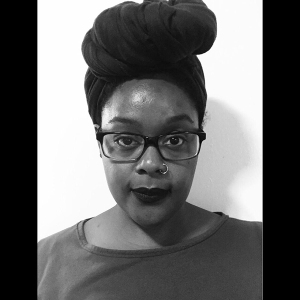by Erica Hughes
About five years ago, I stood underneath the sheet of nighttime, an arm crossed over my chest, a hand buried beneath my armpit, and an ear pressed to my iPhone, listening to my mother’s mother say, “I have never heard anything like this. Do you belong to a cult?”
I had just introduced my grandmother, who grew up in Texas during the 1950s and in a black Southern Baptists church, to the doctrine of total depravity. Except at that time, I didn’t have full the Reformed lexicon. So I came out full force and said it: “Mema, all of humanity is evil, and we need a savior.”
I’m sure that to my family, my “choice” in doctrine is a perplexing one: Firstly, I did not grow up in a particularly religious home (we definitely didn’t know any Calvinists); we went to church on only Christmas and Easter as prompted by both of my grandmothers. Secondly, my lifestyle before I became a Christian consisted of me drinking too much, smoking too much weed, and listening to rappers like Trina, Too Short, and Juvenile. Thirdly, I had a history of being hostile toward the notion of God.
In contrast, however, my brother managed to become a Christian at around the age of five. As his older sibling by eighteen months, I was perplexed. But by my nana’s (my father’s mother) influence, my brother is C.O.G.I. C, which is the Church of God in Christ, a Pentecostal-holiness and predominantly black denomination that stems from the Wesleyan tradition. My brother was the good child. He carried his Bible like a sword, sang hymns that made grown folks weep, and preached to me and my cousins all of the time. Of course, me and my cousins hated him and persecuted him in the name of Bebe’s-kid-ness.
So I like to think that my brother was the most shocked in my family to learn that I had accepted Christ. Even now, some six years after my unlikely conversion and my unlikely doctrinal choices, my brother often stares at me, trying to trace how I, of all people, came to believe in a sovereign God who chooses his people. With a weary voice, my brother often asks, “How could you believe that God chooses his beloved?” Sometimes I don’t respond, hoping to avoid another argument (which I’m mostly bad at doing) and think—How could you believe in an all-powerful God and not believe that he is powerful enough to choose his beloved?
At the point of my regeneration, I needed a God who is determined to set me free from my ominous past. I needed a God who was strong enough to call me out of that darkness and into the freedom of his marvelous light just because, just because of his mysterious and powerful grace.
But for black folks, freedom is often an ominous thing—and it ain’t free. Freedom for black folks costs us the lives of our fathers and mothers, our brothers and sisters, our aunties and uncles, our cousins, our friends. Freedom reminds us that we cannot afford to buy the dream—a narrative in which black children live unharmed, education is equitable, and blackness is human. So how can people fully understand spiritual freedom if their bodies are not free? How can people with a history of malicious enslavement and people experiencing a reincarnation of Jim Crow embrace this doctrine of grace, a doctrine whose founding theologians call them “a far lower form” and “the pools and marshes” of human existence?
Much of my brother’s issue with Calvinism is that it has a history of exclusion. And Calvinists are usually more than happy to exclude non-conforming people of color, women, charismatics, and the poor. Because of this, I am not angry at my brother’s—or any other person of color’s—apprehension of Calvinism—or Christianity—because White Jesus has oppressed millions of people, expressing to them that shouting in church is unethical, that rap songs are the hymns of heathens, that being of color is inferior.
In 2016, my black body still feels the pangs of American bondage, still hums “Keep your hand on that plow, hold on” and “Precious Lord, take my hand…I am tired.” And in the wake of deaths of Mike Brown, Eric Gardner, Tamir Rice, Alton Sterling’s, Philando Castille, I’ve found myself on multiple occasions screaming, “God, do you love black people? God, do you hate us? God, why is this happening? Why are you letting this happen?”
 But in these moments of doubt, I am reminded that my precious, precious Savior, a Jewish man who probably looked more like Osama Bin Laden than Brad Pitt, sat by a well and offered freedom to a poor and promiscuous woman, whom the Jews hated because she was ethnically Samaritan. I am reminded that somewhere in the sovereign Lord’s thoughts, he cogitated rap music and then created Kendrick Lamar.
But in these moments of doubt, I am reminded that my precious, precious Savior, a Jewish man who probably looked more like Osama Bin Laden than Brad Pitt, sat by a well and offered freedom to a poor and promiscuous woman, whom the Jews hated because she was ethnically Samaritan. I am reminded that somewhere in the sovereign Lord’s thoughts, he cogitated rap music and then created Kendrick Lamar.
Erica Hughes, an alumnus of Dordt College, is working toward her MFA in Creative Writing, Poetry at California State University, Fresno and teaches freshmen composition there as well. More importantly, Erica like reads too much for her own good.

